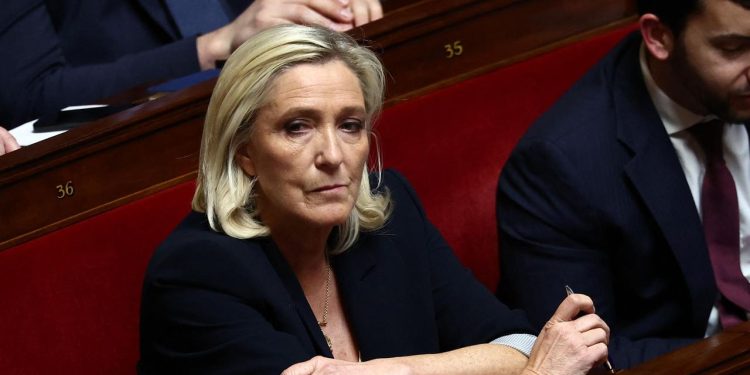Why did the UAE fund Marie Le Pen, a far-right populist with an anti-Islamic stance, back in France’s 2017 presidential election?
Marine Le Pen campaigned as a euro-skeptic, opposing the European Union, NATO, and political Islam while advocating French sovereignty, even if it aligned with Russia. Meanwhile, Emmanuel Macron championed EU integration, NATO loyalty, and liberal economics, positioning himself as a reliable Western ally. For the United States, Macron’s victory was a clear win. His pro-NATO stance secured France’s role in the U.S. military-industrial complex (MIC), ensuring defense contracts and joint operations. Additionally, this outcome delivered a high-payoff strategy with minimal uncertainty. Conversely, the U.S. financial-industrial complex (FIC) and consumer-industrial complex (CIC) benefited from Macron’s deregulated, pro-business policies, gaining unfettered access to European markets.
UAE’s Strategic Gambit with Le Pen
Consider the United Arab Emirates’ perspective, starting with first principles. The UAE prioritizes regional stability and control, often tolerating short-term proxy wars to outmaneuver rivals for long-term dominance. Notably, they view political Islam as a U.S.-backed tool to destabilize the region. Therefore, neutralizing this threat is central to their strategy, even if it requires bold, uncertain moves. Supporting Le Pen was their calculated gambit. A Le Pen presidency could have disrupted the transatlantic alliance, a pillar of U.S. global dominance. By pulling France from NATO, the UAE might have reduced the MIC’s expected payoff, forcing the U.S. to adjust its military strategy with a lower utility score.
This move was zero-sum: Le Pen’s win would shrink U.S. influence, boosting the UAE’s relative power. Furthermore, her skepticism of European unity threatened to fracture the EU, a U.S.-aligned coalition. A divided Europe shifts the equilibrium, creating a multiplayer bargaining game where the UAE could secure bilateral deals with individual nations. For example, France under Le Pen could trigger a chain of defections, with other nations following suit.
Economic Opportunities for the UAE
Economically, the UAE saw a positive-sum opportunity in Le Pen’s policies. Her rejection of U.S.-led financial systems, such as the IMF and World Bank, could pivot France eastward, increasing trade with Gulf states and Asia. Consequently, this shift would cut into the FIC and CIC’s profits as Gulf capital flooded French markets. The UAE’s expected utility was a dual victory: weakening America’s financial grip while expanding their own influence. However, this strategy traded short-term stability for a higher long-term reward, a classic payoff trade-off.
Shared Goals: Countering Political Islam
Another critical factor was Le Pen’s stance on political Islam, which aligned with the UAE’s crackdown on Islamist movements. Both viewed political Islam as a U.S.-backed destabilizer. Thus, a French ally independent of Washington could tilt the regional balance. By supporting Le Pen, the UAE reduced America’s ability to leverage Islamist groups, lowering security risks. This created a cooperative subgame: France and the UAE could jointly curb a mutual threat, amplifying their payoff at America’s expense.
High Stakes, High Rewards
Had Le Pen won, the UAE’s bet would have been a geopolitical masterpiece. Macron’s victory, however, ensured MIC and FIC profits with predictable stability. In contrast, Le Pen offered an asymmetric payoff: a significant blow to U.S. dominance with minimal downside for the UAE. After all, the cost of failure—a sunk investment—was easily absorbed by their vast resources. The potential upside? A restructured Europe open to Gulf influence, with America’s MIC, FIC, and CIC weakened.
Macron represented the U.S.’s low-risk choice, while Le Pen was the UAE’s high-reward gamble. Moreover, this wasn’t a one-off play. Le Pen’s allies, like Italy’s populists, hinted at a broader cascade—a tipping point where Europe’s unity crumbles, and the UAE capitalizes on the chaos. In game-theoretic terms, this is a repeated game with escalating stakes. Each defection weakens the U.S.-led coalition, increasing the UAE’s cumulative payoff. They weren’t merely backing a candidate; they were engineering a new global equilibrium. Ultimately, they didn’t just roll the dice—they nearly rigged the table. And they came closer than most realize.






